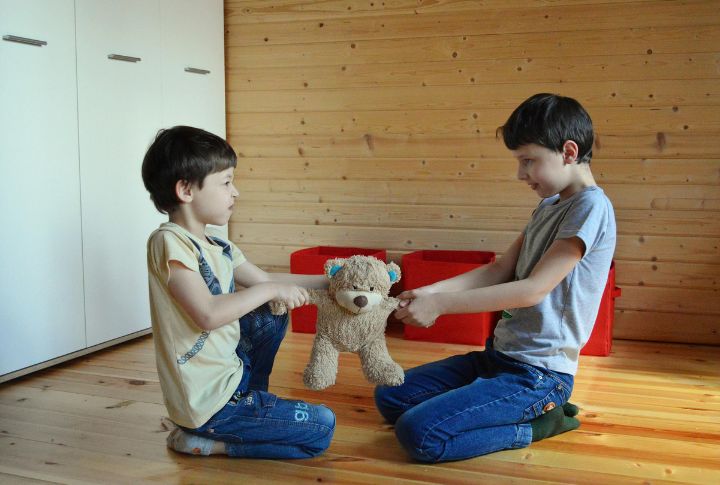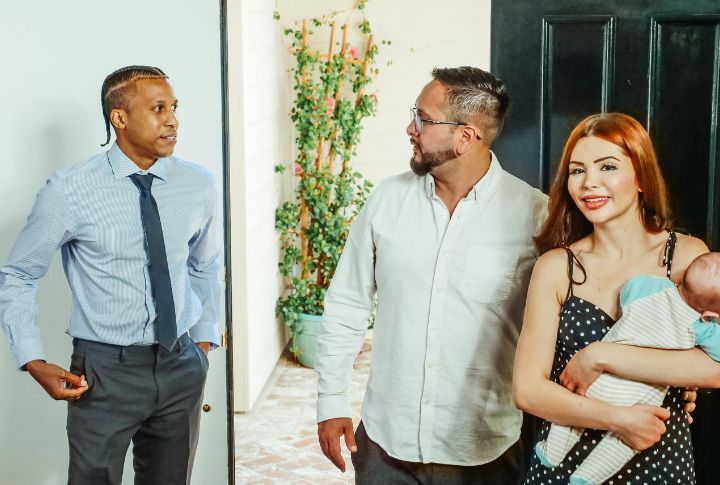
Sibling estrangement can occur for a variety of reasons, ranging from childhood dynamics to adult disagreements. These fractures can be emotionally painful and complex. Here are 20 of the most common causes of siblings growing apart.
Differing Values and Beliefs

What happens when two siblings see the world through opposing lenses? Political divides, religious disagreements, or conflicting lifestyles often magnify tensions during life’s pivotal moments. The solution lies not in agreement but in respect.
Parental Favoritism

Favoritism, even when subtle, plants seeds of resentment. Emotional scars deepen as siblings witness perceived inequalities in love or recognition. Acknowledging these feelings openly, rather than burying them, creates pathways to repair strained relationships.
Unresolved Childhood Rivalries

Those childhood fights over toys or accolades don’t always disappear with age. Instead, they morph into adult rivalries over careers, achievements, or recognition. This lingering competition festers beneath family interactions.
Inheritance Disputes

Who gets the family home or heirlooms? These questions often ignite fiery debates. When siblings feel slighted about inheritance matters, the fallout can last. Mediation before disputes arise ensures transparency and fairness.
Geographic Distance

A sibling living across the globe faces a unique challenge: maintaining the emotional closeness that proximity once provided. Physical separation often leads to a weakening bond, especially when communication is inconsistent.
Mental Health Challenges

Someone battling depression or anxiety might withdraw, which may leave family members feeling confused or hurt. Conversely, misunderstanding these struggles creates barriers. Patience and a supportive approach encourage healing and bring siblings closer.
Substance Misuse

Addiction weaves chaos into family life. A sibling struggling with substance misuse often becomes isolated, while others feel overwhelmed by the fallout. Encouraging rehabilitation and offering compassion can be the lifeline that restores these fractured bonds.
Jealousy and Competition

Why does one sibling’s success feel like another’s failure? Jealousy stems from feeling overshadowed or undervalued. These emotions often peak during major achievements like promotions or marriages.
Poor Communication Skills

Silence can be louder than words when siblings stop talking. Misunderstandings snowball when issues go unspoken, or discussions turn accusatory. Prioritizing clear, compassionate conversations helps siblings address conflicts before they become irreparable.
Cultural and Generational Differences

Growing up in different eras or cultures can feel like speaking different languages. Younger siblings may embrace modern ideals while older ones hold onto tradition. Mutual curiosity about each other’s worlds brings a sense of connection despite these divides.
Parental Meddling

Siblings don’t always fight their own battles. A parent interfering in disputes can escalate rather than resolve conflicts. Allowing siblings to manage their relationships independently establishes trust and reduces unnecessary friction.
Romantic Relationships

A sibling’s new partner may inadvertently alter family dynamics. Having misunderstandings or jealousy with in-laws can lead to distance. Family ties are strengthened rather than weakened when boundaries and inclusivity are discussed.
Financial Conflicts

Money talks, but it doesn’t always bring siblings closer. Financial disagreements—over loans, gifts, or joint ventures—breed mistrust. Clearly defining expectations for monetary exchanges can preserve family harmony and trust.
Differing Life Stages

Life has a way of pulling siblings in opposite directions. One may focus on parenting while another dives into a demanding career, making it hard to relate. Planning shared experiences, no matter how small, creates moments of connection across these divides.
Unfair Burden of Caregiving

Caring for aging parents isn’t always an equal effort. When one sibling feels the weight of responsibility while others seem absent, resentment grows. Early and open discussion of caregiving roles strengthens rather than weakens familial ties.
Trauma

A sibling who endured trauma may struggle to reconcile with their family. Emotional scars, often ignored or invalidated, keep wounds open. Acknowledging the pain and seeking professional guidance fosters understanding.
Birth Order Dynamics

Older siblings often shoulder leadership roles, while younger ones seek individuality, leading to mismatched expectations. For example, an elder sibling may expect deference, while the youngest craves independence.
Perceived Lack of Support

When siblings fail to show up during tough times, the emotional distance widens. Missing a wedding or ignoring a job loss creates feelings of abandonment. Heartfelt support during life’s highs and lows demonstrates a commitment to the relationship.
Blame for Family Problems

Being scapegoated for family struggles alienates a sibling. If one is labeled as “the cause,” reconciliation becomes difficult. A shift in focus to collective solutions and shared responsibility restores fairness and fosters stronger bonds among siblings.
Sibling Neglect or Indifference

In relationships, neglect hurts more than conflict. When siblings forget birthdays, skip milestones or avoid reaching out, the connection fades. Small efforts like a thoughtful message or surprise visit can reignite bonds that time or distance might have dulled.

